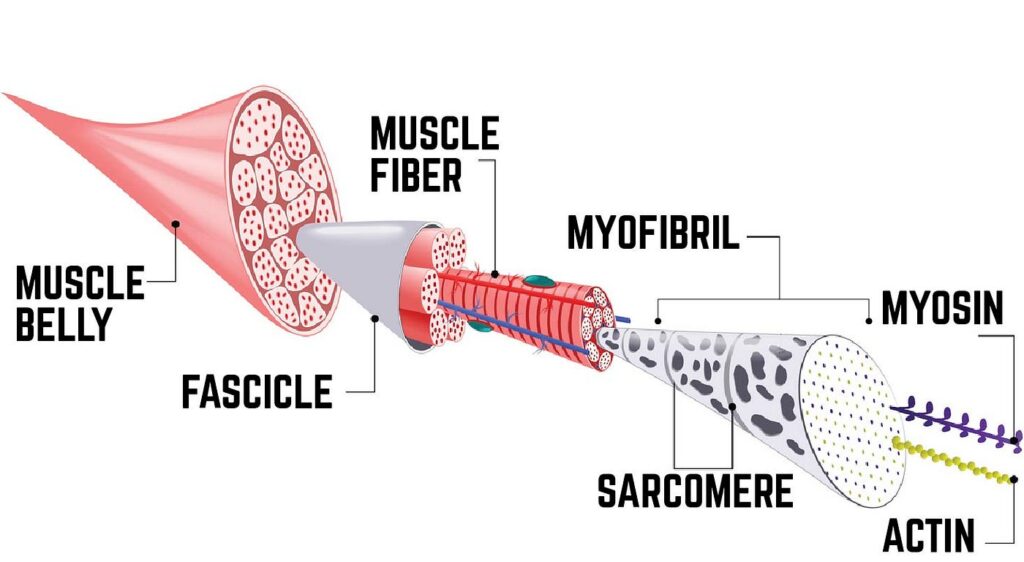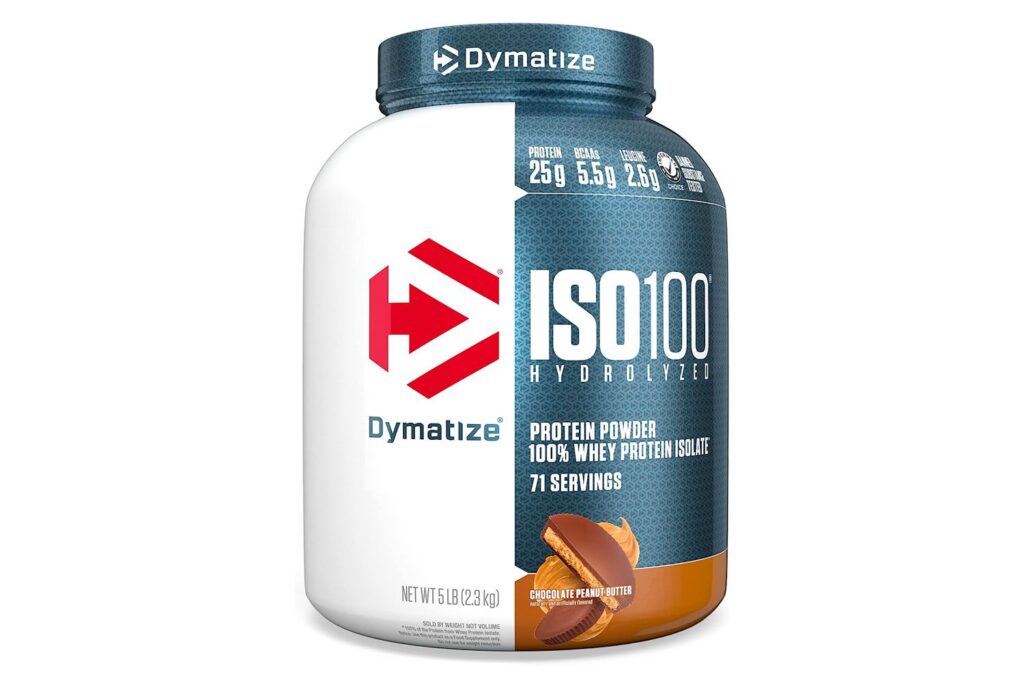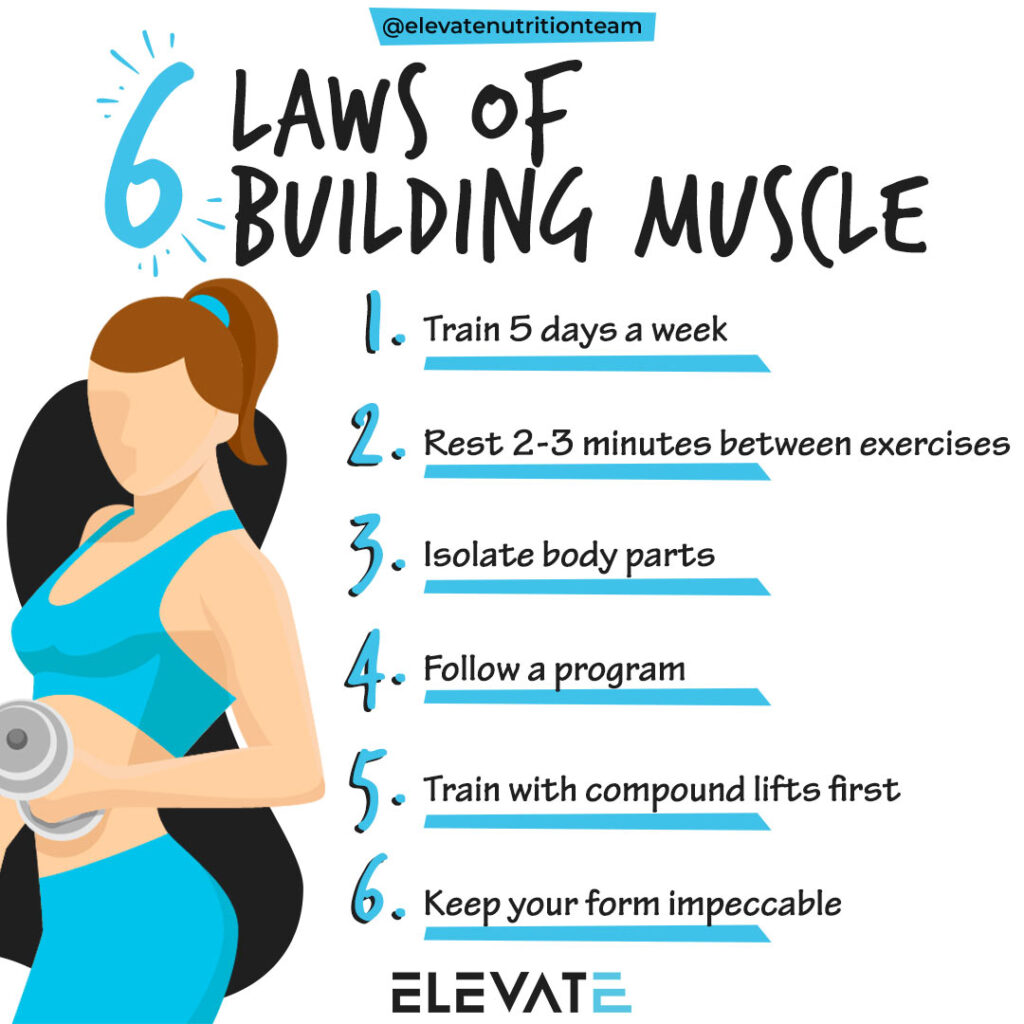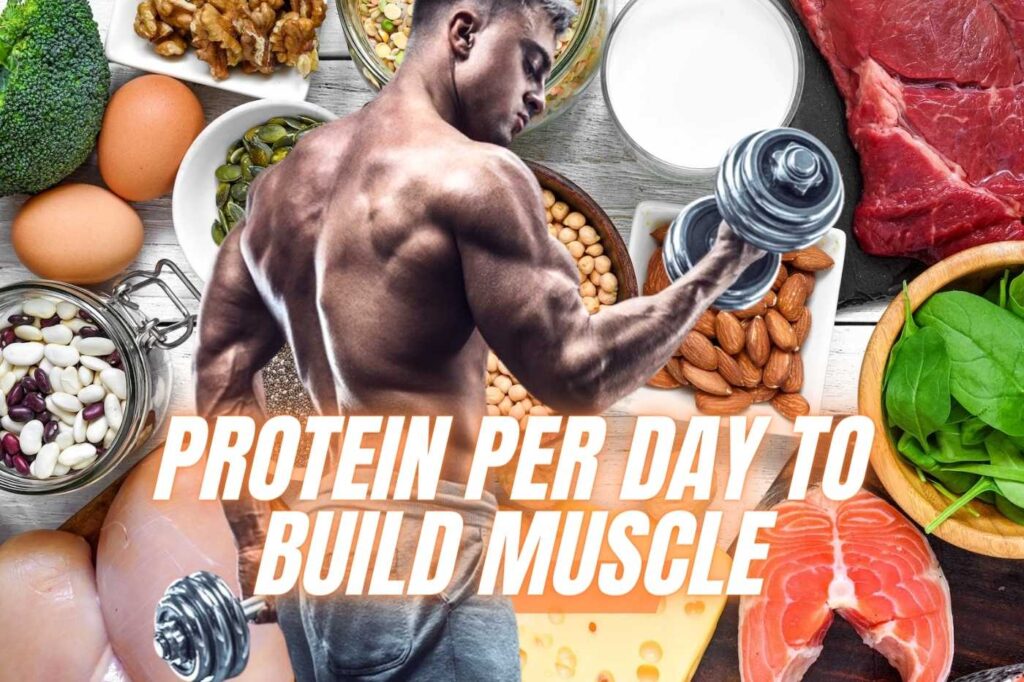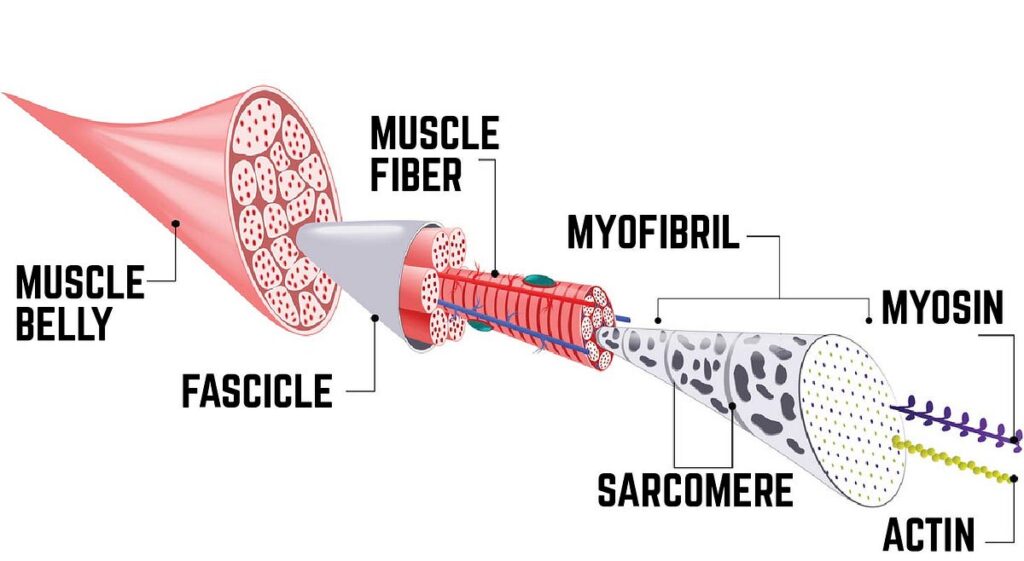Muscle growth occurs through a process called hypertrophy. This involves the repair and growth of muscle fibers after they experience stress or damage.
Muscle growth, or hypertrophy, is a fascinating biological process that occurs when muscle fibers repair and grow after being stressed or damaged during exercise. Resistance training and weightlifting are common methods to induce this stress. The body responds by increasing the size and number of muscle fibers.
Protein intake and rest are crucial for effective muscle recovery and growth. Hormones like testosterone and growth hormone also play significant roles. Consistency in exercise, proper nutrition, and adequate rest are key factors for optimal muscle growth. Understanding these elements can help individuals achieve their fitness goals efficiently.
Science Of Muscle Growth
Muscles have different fiber types. There are slow-twitch and fast-twitch fibers. Slow-twitch fibers are for endurance. They help in long activities like running. Fast-twitch fibers are for quick bursts of power. They help in activities like weightlifting. Each type has a unique role in muscle growth.
Hypertrophy is the growth of muscle cells. It happens in two main ways. Mechanical tension is one way. This happens when lifting heavy weights. Muscle damage is another way. This is when muscles get tiny tears. Metabolic stress also helps. This is the burn you feel during exercise. All these mechanisms help muscles grow bigger and stronger.
Role Of Genetics
People have different genes. These genes affect muscle growth. Some people build muscle fast. Others build muscle slowly. Genes control muscle size and strength. This is called genetic variability.
Genes also determine muscle size. Some people have bigger muscles naturally. Others have smaller muscles. Training helps, but genes play a big role. Muscle size depends on your parents’ genes. You can still get stronger with exercise.
Importance Of Nutrition
Protein is crucial for muscle growth. Our muscles need protein to repair and build. Eating enough protein helps muscles grow stronger. Choose sources like chicken, fish, and beans. Aim for 1.6 to 2.2 grams of protein per kilogram of body weight. Spread protein intake throughout the day. This helps the body to use it effectively.
Timing of nutrients plays a key role. Eating protein after workouts is essential. It helps in muscle recovery. Carbs are also important. They refill energy stores in muscles. A balanced meal with carbs and protein is best. Try to eat within 30 minutes after exercise. This boosts muscle repair and growth.
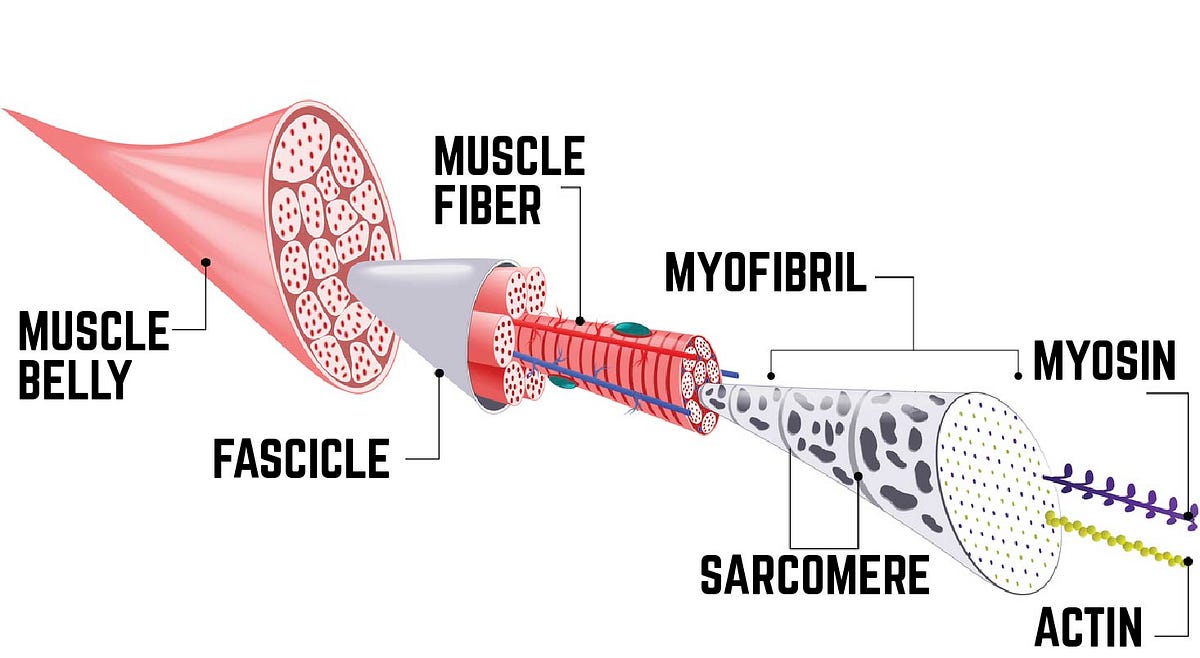
Credit: medium.com
Effective Training Techniques
Resistance training helps build muscle strength. It involves lifting weights or using resistance bands. Muscles grow by repairing small tears caused by this training. Rest and nutrition are vital for muscle recovery.
Progressive overload means gradually increasing the weight or resistance. It ensures muscles continue to grow. Start with light weights and slowly increase the load. Track your progress to avoid injury.
Recovery And Rest
Good sleep is vital for muscle growth. Muscles repair and grow during deep sleep. Aim for 7-9 hours each night. Create a bedtime routine to improve sleep quality. Keep your room dark and cool. Avoid screens before bedtime. Try reading a book to relax. Quality sleep boosts muscle recovery and growth.
Active recovery is gentle exercise after intense workouts. It helps reduce muscle soreness. Activities like walking, swimming, or yoga work well. These activities increase blood flow to muscles. Better blood flow brings more nutrients to muscles. This speeds up the healing process. Active recovery helps muscles grow stronger. Take time to rest and recover.
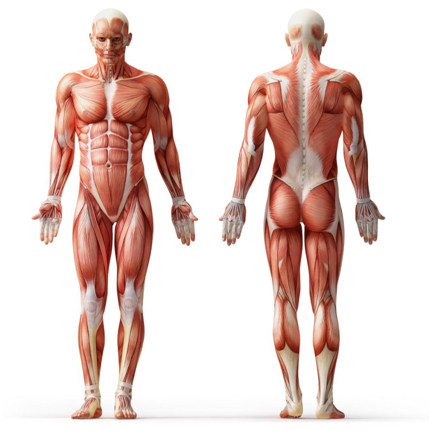
Credit: www.builtlean.com
Supplementation
Many people use supplements to help grow muscles. Protein powders are very popular. They provide the body with extra protein. Creatine is another common supplement. It helps muscles produce energy during heavy lifting. Branched-Chain Amino Acids (BCAAs) support muscle recovery and reduce soreness. Each of these supplements can help in different ways.
Safety of supplements is very important. Always check with a doctor before starting. Some supplements can cause side effects. It is important to read the label. Follow dosage instructions carefully. Efficacy means how well the supplement works. Not all supplements work the same for everyone. Some people may see great results. Others might not see much change. Always choose high-quality products.
Common Myths
Spot reduction is the idea that you can lose fat in one specific area. This is a common myth. Fat loss happens all over the body. Exercise can tone muscles in a specific area. But it won’t just burn fat there. Balanced workouts are the best way to lose fat.
Many people think you must feel pain to gain muscle. This is not true. Muscle growth happens through consistent exercise. Pain can mean you are doing something wrong. It’s important to listen to your body. Rest is also key for muscle growth. Overworking can lead to injuries.

Credit: www.youtube.com
Tracking Progress
Keep a log of your workouts. Track weights and repetitions. This helps you see progress. Take photos every few weeks. Look for changes in muscle size. Use a tape measure for arms, legs, and chest. Record these numbers. Weigh yourself regularly. Check muscle growth, not just weight.
Change your exercises every few weeks. This keeps muscles guessing. Add more weight as you get stronger. Increase the number of sets and repetitions. Rest is important too. Muscles need time to heal. Eat enough protein. This helps muscles grow. Stay patient and consistent. Results take time.
Frequently Asked Questions
What Triggers Muscle Growth?
Muscle growth is triggered by resistance training. Lifting weights causes tiny tears in muscle fibers. The body repairs these tears, making muscles stronger and bigger.
How Much Protein Is Needed For Muscle Growth?
Consuming 1. 2 to 2. 2 grams of protein per kilogram of body weight daily supports muscle growth. Protein-rich foods include chicken, fish, and legumes.
Does Sleep Affect Muscle Growth?
Yes, sleep significantly affects muscle growth. During sleep, the body releases growth hormone, which helps repair and build muscle tissues.
How Often Should You Train For Muscle Growth?
Training each muscle group 2-3 times per week is optimal. This frequency allows adequate recovery and maximizes muscle growth.
Conclusion
Understanding muscle growth empowers you to achieve your fitness goals. Consistency, proper nutrition, and rest are crucial. By following these principles, you’ll see steady progress. Stay committed, and your muscles will thank you. Keep learning and adjusting your routine for optimal results.
Happy training and muscle building!

